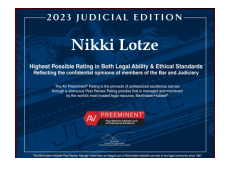Consequences for Refusing to Submit to Blood Alcohol or Field Sobriety Tests
As chemical testing has evolved into a much relied-on prosecution tool, ”implied consent” laws have evolved to defeat the drunk driver’s inclination to refuse to consent to such testing. An implied consent statute does not command that a person suspected of driving while intoxicated be forced to submit to a chemical test; rather, the person may refuse to take a chemical test of his or her blood, breath, or urine, but if certain statutorily prescribed procedures are complied with, such a refusal does not go unpunished.
Field sobriety tests are administered to motorists much more frequently than chemical tests. In fact, they are usually given at the scene of the stop, long before the motorist must decide whether to take a chemical test. Just as with chemical testing, a refusal to perform a field sobriety test does not go unpunished. The possible consequences of a refusal to take a field sobriety test may include: (1) an automatic administrative license suspension; (2) a request to submit to a chemical test, which, if withheld, results in a mandatory suspension of driving privileges and the admission of such refusal as evidence against the motorist; and (3) an enhanced sentence on conviction of the underlying drunk driving offense.
In many jurisdictions, it has been held that acquittal of the charge of driving while under the influence of intoxicating liquor does not preclude the suspension of a motorist’s license for having refused to submit to a test as the offense involved is the refusal to submit to testing.
The chemical test statutes in the majority of states provide that implied consent to a chemical test arises only after arrest. In those states, an arrested person is compelled to elect whether to submit to a chemical test or lose his or her license. The arrested motorist must be clearly advised of the results of his or her refusal to take the test, however. There is no constitutional right to refuse to take the test. It is widely held that a motorist’s refusal to submit to a post-arrest blood-alcohol test is admissible against the motorist even where the police have failed to advise the motorist that the refusal may be used against him or her in court. This has been so held because the motorist’s Fifth Amendment privilege against compelled self-incrimination is not offended so long as the motorist is neither unduly compelled to refuse nor misled to believe the refusal is free of adverse consequences.
Copyright 2012 LexisNexis, a division of Reed Elsevier Inc.













